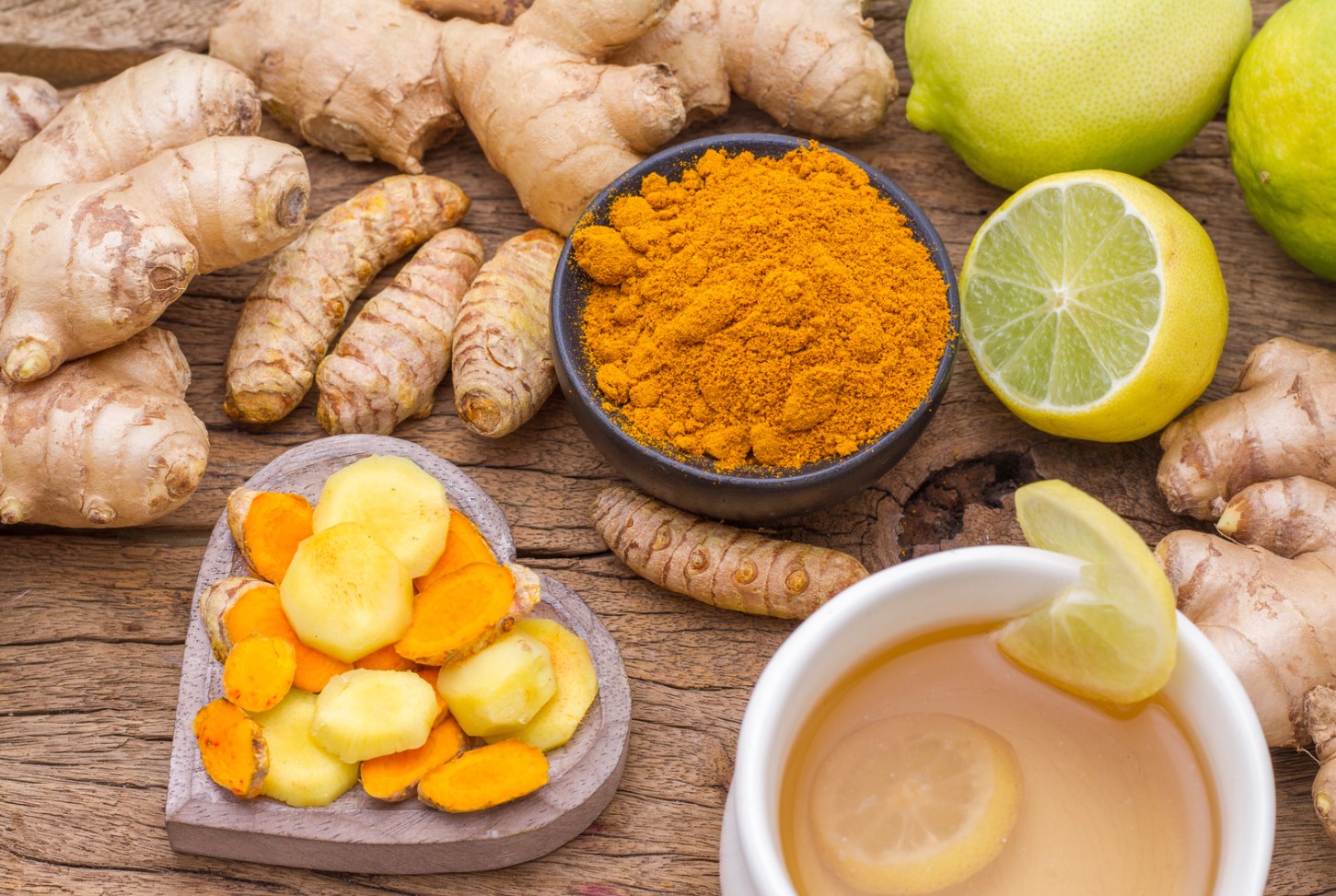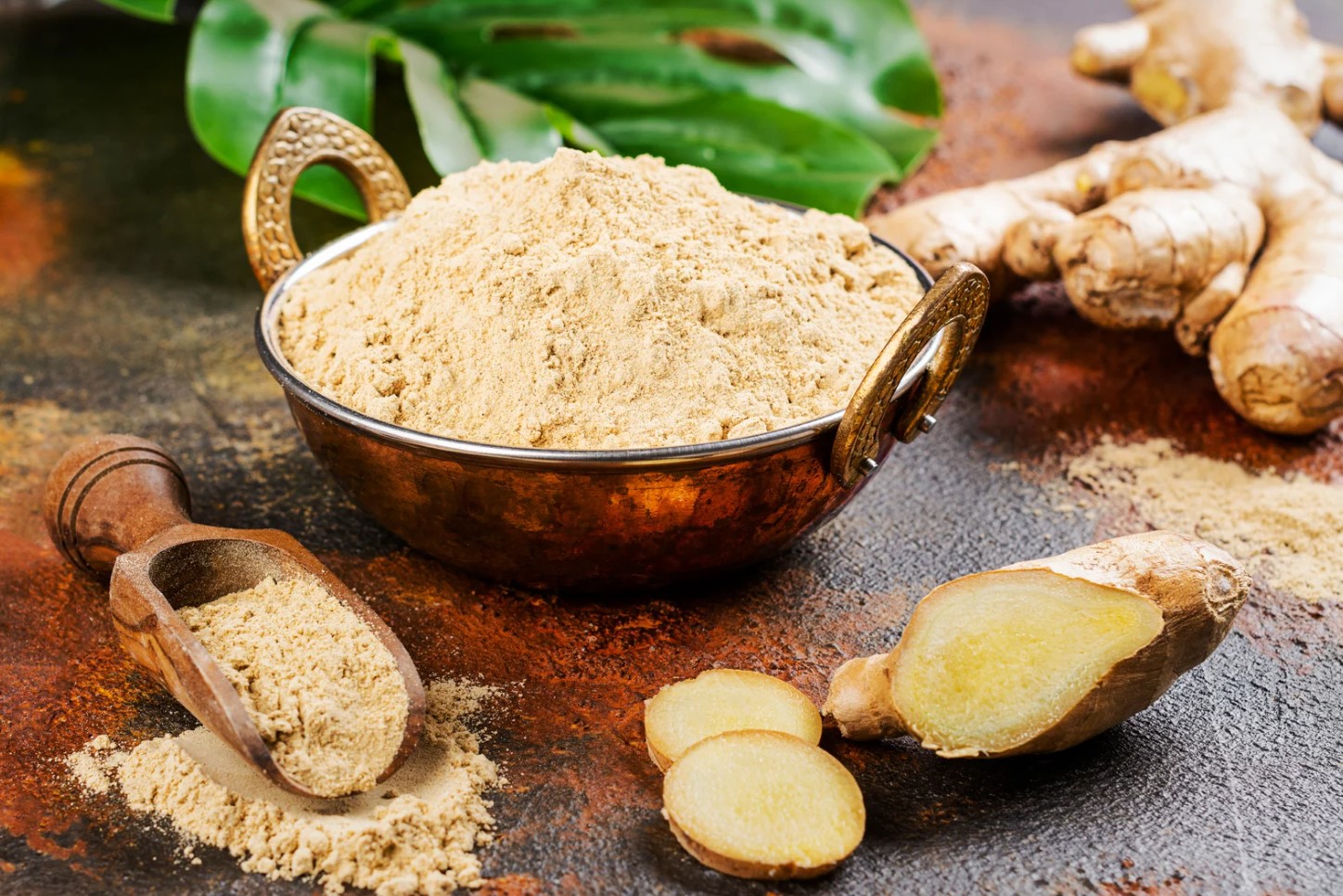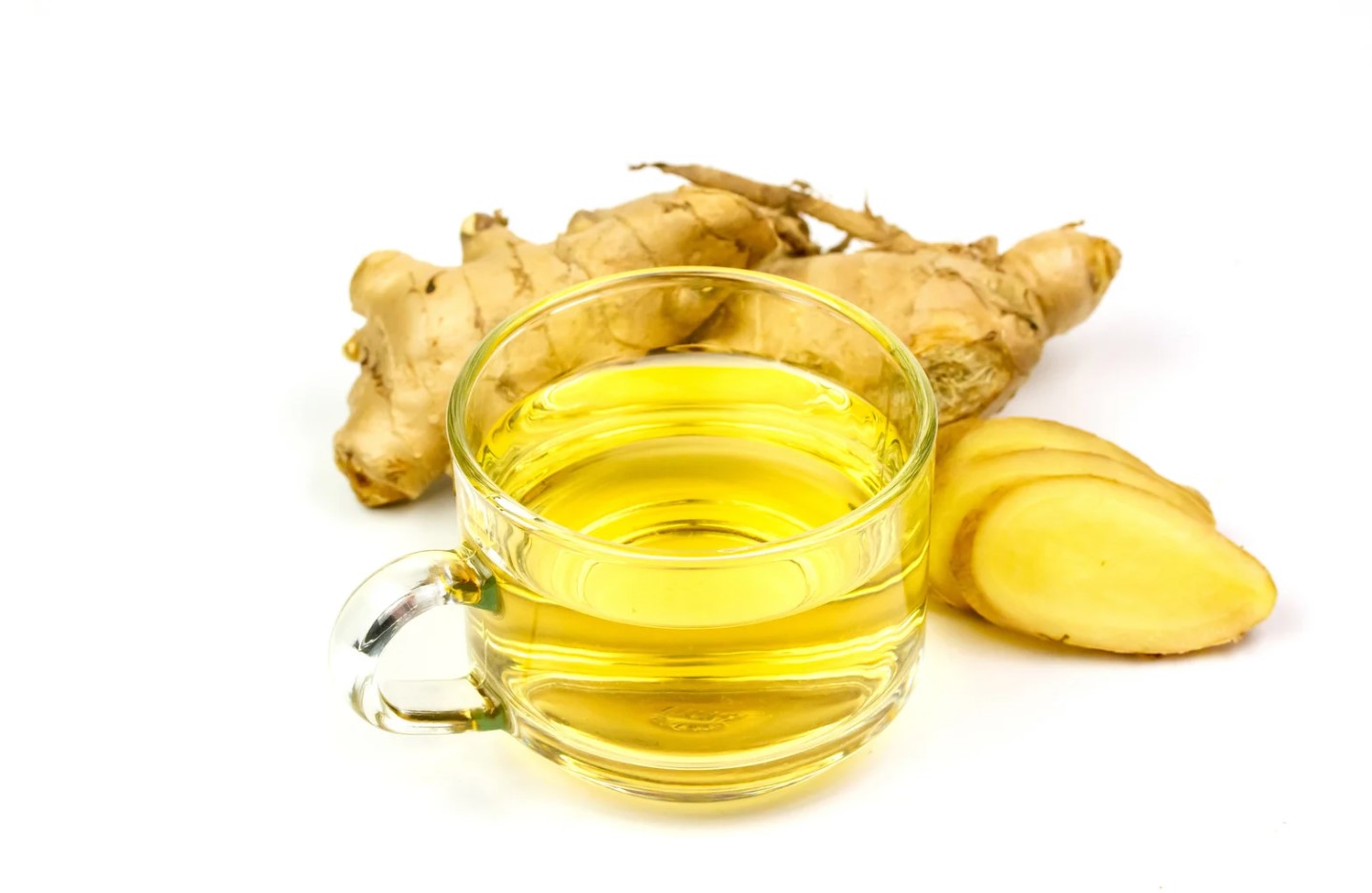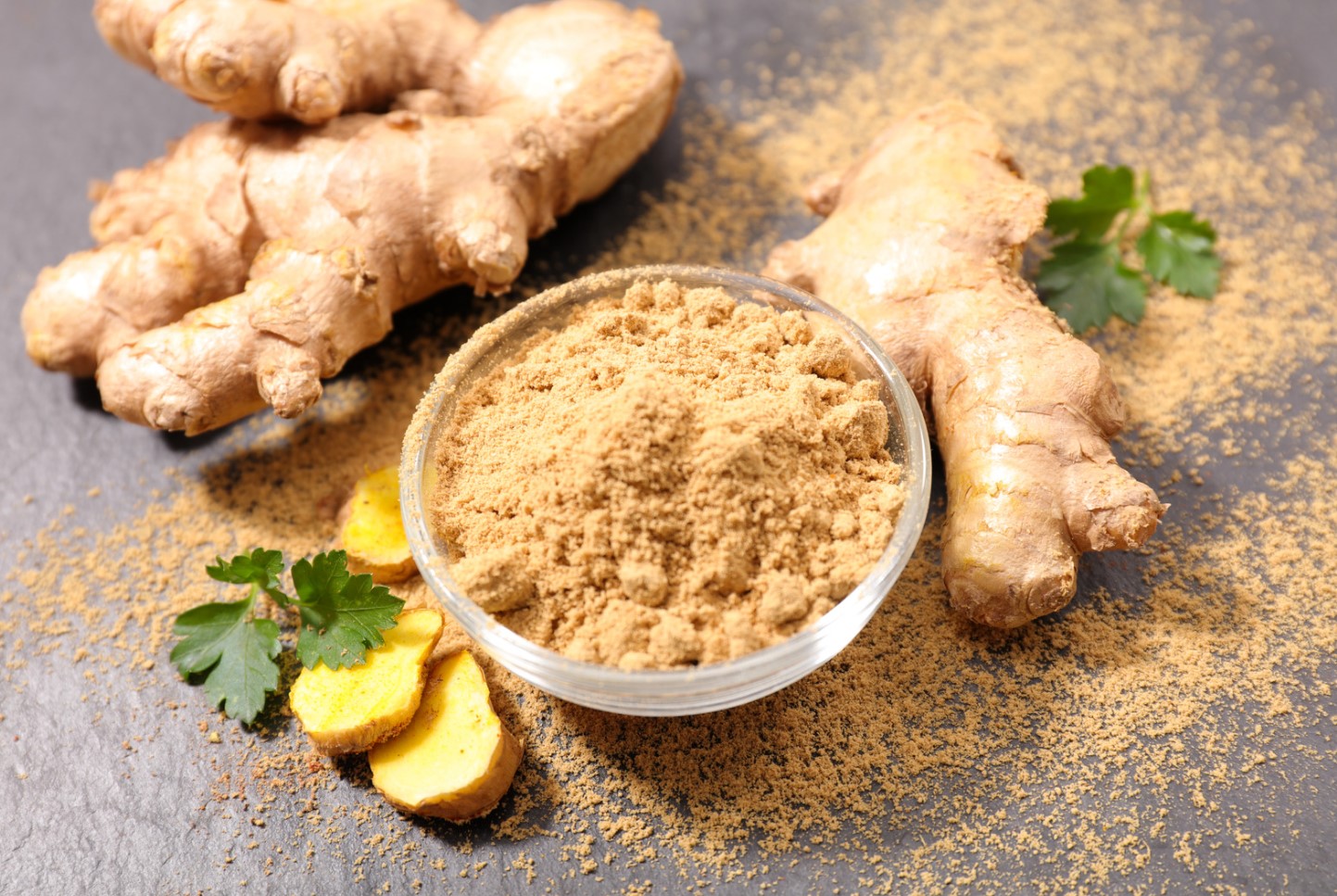Introduction: The Power Of Ginger
Ginger is a root that has been used for centuries as a spice and for its medicinal properties. Its distinct flavor and aroma make it a popular ingredient in many dishes around the world. But, beyond its culinary uses, ginger has numerous health benefits that make it a valuable addition to anyone’s diet.
One of the most prominent benefits of ginger is its anti-inflammatory properties. Inflammation is the root cause of many chronic diseases that plague our society, such as heart disease, diabetes, and obesity. Ginger contains compounds that help reduce inflammation in the body, which can lead to improved overall health and wellbeing.
Ginger is also known for its ability to improve digestion. It can help relieve bloating, constipation, and other digestive issues by increasing the production of digestive enzymes in the stomach. This can lead to better nutrient absorption and improved gut health.
- Ginger can also help reduce nausea and vomiting, making it a popular remedy for seasickness and morning sickness during pregnancy.
- Studies have shown that ginger may help lower blood sugar levels, which can be particularly beneficial for those with diabetes.
- In addition, ginger has been shown to reduce menstrual pain in women and may even prevent certain types of cancer.
As you can see, ginger has a wide range of health benefits that make it a powerful addition to any diet. Whether you’re looking to improve your digestion, reduce inflammation, or prevent chronic diseases, incorporating ginger into your daily routine is a simple and effective way to support your overall health and wellbeing.

Ginger’s Nutritional Value
Ginger is a root vegetable primarily cultivated in Asia, and has been used in culinary and medicinal practices worldwide for centuries. Its distinctive aroma and flavor make it a popular addition to meals and drinks, as well as a potent natural remedy for a variety of ailments. One of the most remarkable features of ginger is its exceptional nutritional value, which makes it an excellent addition to any well-rounded diet.
At its core, ginger is a nutritious vegetable that is packed with vitamins and minerals. It is a rich source of vitamin B6, which plays a vital role in brain and nervous system function, as well as immune system support. Additionally, ginger is a great source of potassium, which helps regulate blood pressure and aids in heart health. Other key vitamins and minerals found in ginger include vitamin C, magnesium, and copper.
- 1. Vitamin B6: Supports brain function, immune system support
- 2. Potassium: Regulates blood pressure, aids in heart health
- 3. Vitamin C: Acts as an antioxidant, boosts immune system
- 4. Magnesium: Aids in muscle and nerve function, bone health
- 5. Copper: Helps form red blood cells, supports immune and nervous systems
But the benefits of ginger don’t stop there. This superfood also contains gingerols, which are powerful anti-inflammatory compounds that help reduce free radical damage and inflammation throughout the body. This makes ginger an excellent natural remedy for arthritis, muscle soreness, and other inflammatory conditions. In fact, ginger has been shown to be just as effective as nonsteroidal anti-inflammatory drugs (NSAIDs) in alleviating pain and inflammation.
Incorporating ginger into your daily routine is an easy and delicious way to boost your nutrient intake and support your overall health. Whether in the form of fresh ginger root, dried ginger, or ginger supplements, there are plenty of ways to take advantage of the many benefits of this amazing superfood.
| Vitamin/Mineral | Amount per 100g |
|---|---|
| Vitamin B6 | 0.16mg |
| Potassium | 415mg |
| Vitamin C | 5mg |
| Magnesium | 43mg |
| Copper | 0.226mg |
So, next time you’re looking for a healthy and delicious addition to your meals or want to soothe an upset stomach or relieve joint pain, reach for the ginger. This remarkable superfood is truly one of nature’s greatest gifts, and its exceptional nutritional value makes it an essential component of any balanced diet.
Healing Powers Of Ginger
Ginger is a root that has been used for centuries, both as a spice in cooking and as an herbal remedy. It has a variety of benefits, including healing powers that can help with a range of health issues. In this blog post, we will explore the different ways in which ginger can act as a healing agent.
One of the most well-known healing powers of ginger is its ability to reduce inflammation. Ginger contains compounds called gingerols, which have been shown to have anti-inflammatory effects on the body. This can be particularly helpful for people with chronic conditions such as arthritis, as well as for athletes who experience muscle soreness after intense exercise.
In addition to reducing inflammation, ginger can also help with digestion. It has been used for centuries to treat digestive issues such as nausea, vomiting, and diarrhea. Ginger works by increasing the production of digestive enzymes, which can help to break down food and ease digestion. This makes it a valuable tool for people with digestive disorders such as irritable bowel syndrome (IBS).
- Ginger can also be helpful for relieving cold and flu symptoms. It acts as a natural decongestant, helping to clear nasal passages and alleviate congestion. It can also help to reduce fever and relieve a sore throat.
- Studies have shown that ginger may also have anti-cancer properties. The compounds in ginger have been found to inhibit the growth of cancer cells and may even help to prevent the development of certain types of cancer.
- Another benefit of ginger is its ability to boost brain function. It has been shown to improve cognitive function and memory, making it a valuable tool for people looking to improve their brain health.
There are many different ways to incorporate ginger into your daily routine. You can add ginger to your cooking or drink it as a tea. There are also many ginger supplements available that can provide concentrated doses of this healing root. However you choose to use it, adding ginger to your diet can have many health benefits and is a great way to improve your overall wellbeing.

Anti-Inflammatory Properties
Ginger has been used for centuries as a natural remedy for a wide range of ailments. One of its most notable benefits is its anti-inflammatory properties which can help to reduce inflammation in the body. Inflammation occurs when the body’s immune system responds to an injury, infection or irritant. While inflammation is a natural response, it can become chronic and lead to a range of health problems.
-
- Reduces Joint Pain
One of the most common health issues associated with inflammation is joint pain. Osteoarthritis is a degenerative joint disease that affects millions of people around the world. Studies have shown that ginger can help to reduce pain and inflammation in the joints. This is due to its anti-inflammatory compounds, which help to reduce swelling and improve joint mobility.
-
- Helps with Asthma Symptoms
Ginger may also help to alleviate symptoms of asthma. Asthma is a chronic inflammatory disease that affects the airways. The anti-inflammatory properties of ginger may help to reduce inflammation in the airways, making it easier to breathe. Studies have shown that ginger can improve lung function and reduce asthma symptoms in some people.
-
- Lowers Risk of Heart Disease and Stroke
Inflammation has been linked to an increased risk of heart disease and stroke. The anti-inflammatory properties of ginger may help to reduce this risk. Studies have shown that ginger can lower blood pressure, reduce cholesterol levels and improve circulation. All of these factors can help to reduce the risk of heart disease and stroke.
If you suffer from chronic inflammation or are at risk of developing inflammation-related health problems, consider incorporating ginger into your daily routine. Ginger can be consumed in a variety of ways, such as in teas, smoothies, or as a spice in cooking. However, it is important to speak with your doctor before adding any new supplements or foods to your daily routine.

Improving Digestion
Ginger is a widely used herb in various cuisines all over the world. It not only adds a unique flavor to your dishes but also provides many health benefits. Improving digestion is one such benefit.
The active compounds present in ginger, such as gingerols and shgaols, help stimulate the production of digestive juices and enzymes that aid in digestion. It also helps to relieve gastrointestinal discomfort, bloating, constipation, and gas. Ginger tea is a popular remedy for these digestive issues.
Moreover, ginger has been found to be effective in reducing inflammation in the gut, which is a common cause of digestive problems. By reducing inflammation, ginger helps to improve the intestinal motility, which further enhances the digestive process.
- Include ginger in your meals by adding it to your recipes, or just chewing a small piece of raw ginger before meals.
- Drink ginger tea with honey after meals to stimulate digestion and relieve bloating.
- Alternatively, you can take ginger supplements if you are not fond of the taste of ginger.
| Ginger | Benefits |
|---|---|
| Improves Digestion | Stimulates digestive juices and enzymes, reduces inflammation in gut, enhances intestinal motility. |
| Reduces Nausea and Vomiting | Effective in reducing morning sickness in pregnant women, and reducing nausea and vomiting during chemotherapy |
| Prevents Cancer | Contains anti-cancer properties that can help prevent the growth and spread of cancer cells in the body. |
Overall, incorporating ginger into your daily routine can have significant digestive benefits. Whether you use it in your meals, as a tea, or in supplement form, ginger can help reduce digestive discomfort and improve your overall digestive health.
Reducing Nausea And Vomiting
Ginger is known to have many health benefits, one of which is reducing nausea and vomiting. This is especially helpful for individuals who experience motion sickness, morning sickness during pregnancy, and side effects from chemotherapy. The unique compounds found in ginger, such as gingerols and shogaols, help to soothe the stomach and reduce inflammation.
Studies have shown that ginger can be just as effective as prescription medication in reducing nausea and vomiting. In fact, some individuals may prefer to use ginger as it is a natural remedy without the harsh side effects of medication. Ginger can be consumed in many forms including capsules, teas, and even fresh ginger root.
- Adding fresh ginger root to hot water and drinking it as a tea is a great way to ease nausea and vomiting symptoms.
- Chewing on a piece of crystallized ginger can provide quick relief for an upset stomach.
- Ginger capsules can also be taken as a supplement for long-term nausea relief.
It is important to note that pregnant women should consult with their doctor before taking ginger supplements or consuming large amounts of ginger. Although it is generally considered safe in small amounts, too much ginger can potentially cause uterine contractions and harm the pregnancy.
In conclusion, ginger can be an effective natural remedy for reducing nausea and vomiting. Its unique compounds help to soothe the stomach and reduce inflammation without the harsh side effects of medication. Whether consumed as a tea, chewed on as crystallized ginger, or taken as a supplement, incorporating ginger into your daily routine can provide relief for those who experience nausea and vomiting symptoms.

Relieving Cold And Flu Symptoms
Ginger has many health benefits, including its potential to relieve cold and flu symptoms. One of the main compounds in ginger, called gingerols, has anti-inflammatory and antioxidant effects that can aid in reducing inflammation and boosting the immune system, which can lead to a faster recovery from cold and flu infections.
Another way that ginger can relieve cold and flu symptoms is through its warming properties. Ginger can help to raise body temperature, which can help to fight off viruses and bacteria that thrive in colder environments. Additionally, ginger can soothe symptoms of a sore throat or cough by acting as a natural expectorant, helping to loosen mucus and phlegm.
- One way to incorporate ginger into your cold and flu fighting routine is by making ginger tea. Boil a few slices of fresh ginger in water for about 10 minutes, then strain and add honey and lemon for extra soothing effects.
- You can also add grated ginger to soups and stews for an added boost of immune-boosting properties.
| Ginger Tea Recipe |
|---|
| Ingredients: |
| – 2 inches fresh ginger |
| – 4 cups water |
| – 2 tbsp honey |
| – 1 lemon, sliced |
| Directions: |
| 1. Peel and thinly slice the ginger. |
| 2. In a medium pot, bring the water and ginger to a boil. |
| 3. Reduce heat and simmer for 10 minutes. |
| 4. Strain the mixture and add honey and lemon to taste. |
By incorporating ginger into your daily routine when trying to fight off cold and flu symptoms, you may experience faster recovery times and reduced severity of symptoms. It’s important to note, however, that ginger should not be used as a substitute for medical treatment if symptoms persist or worsen.
Lowering Blood Sugar Levels
Ginger has been used for centuries as a spice and a natural medicine all around the world. Its benefits are numerous, and one of them is its ability to lower blood sugar levels. This is especially beneficial for people with diabetes, and those who want to prevent this chronic condition.
Ginger has a compound called gingerols that can help regulate blood sugar levels by increasing insulin sensitivity. Insulin is a hormone that regulates glucose levels in the blood. When insulin sensitivity is lower, the body is not able to process glucose properly, which can lead to high blood sugar levels over time.
- One way to include ginger in your diet is by adding freshly grated ginger to tea or hot water with lemon and honey.
- You can also add ginger to your smoothies or juices to reap its benefits.
- Raw, grated ginger can be added to marinades or salad dressings, or used to season meats and vegetables.
Ginger can be a great addition to a healthy diet and lifestyle to help regulate blood sugar levels. However, it is important to note that ginger should not be used as a substitute for medication prescribed by a doctor. If you have diabetes, always consult with your healthcare professional before incorporating ginger into your diet.
| Benefits of including ginger in your diet to lower blood sugar levels: |
|---|
| Increase insulin sensitivity |
| Regulate glucose levels |
| Prevent chronic conditions like diabetes |
| Improve overall health and well-being |
Ginger can be consumed in many different ways to lower blood sugar levels. However, it is important to monitor your consumption to ensure you are not consuming too much. Excessive intake of ginger may cause GI distress and interact with certain medications. Therefore, it is always recommended to talk to a healthcare professional before using ginger as a medicinal food.
Incorporating ginger into your daily routine can not only help lower blood sugar levels, but also provide a variety of other health benefits. A healthy and balanced diet combined with regular physical activity can go a long way towards maintaining overall health and well-being.

Reducing Menstrual Pain
Menstrual pain, also known as dysmenorrhea, is a common problem that affects many women during their menstrual cycle. The pain can be mild or severe, and it can interfere with daily activities. One natural remedy for reducing menstrual pain is ginger.
Ginger has been used for centuries as a natural remedy for various ailments. It contains a compound called gingerol, which has anti-inflammatory properties. This makes it effective in reducing pain and inflammation, including menstrual pain. In addition, ginger also improves blood circulation, which can help to reduce the severity of menstrual cramps.
- Some of the benefits of ginger for reducing menstrual pain include:
- Reducing inflammation and pain
- Improving blood circulation
- Relaxing the muscles in the uterus
Ginger is also believed to be effective in reducing other menstrual symptoms such as bloating, nausea, and vomiting. Additionally, ginger is a natural analgesic, which means it can help to relieve pain without the use of medication.
| How to use ginger for menstrual pain relief: |
|---|
| 1. Ginger Tea: |
| One of the easiest ways to use ginger for menstrual pain relief is by drinking ginger tea. To make ginger tea, simply slice up fresh ginger root and steep it in hot water for a few minutes. You can also add a dash of honey or lemon for flavor. |
| 2. Ginger Capsules: |
| Ginger capsules can also be taken to reduce menstrual pain. These capsules are available in health food stores and online. Make sure to follow the dosage instructions on the product label. |
| 3. Ginger Oil: |
| Ginger oil can be used topically to reduce menstrual pain. Simply add a few drops of ginger oil to a carrier oil such as coconut oil and massage it on the lower abdomen. |
In conclusion, ginger is a natural and effective remedy for reducing menstrual pain. Whether you choose to drink ginger tea, take a ginger capsule, or use ginger oil topically, incorporating this powerful herb into your daily routine can help to alleviate menstrual pain and other symptoms.
Preventing Cancer
Ginger is not only a tasty spice, but also has numerous health benefits that are slowly being discovered. One of the added benefits of ginger is its ability to prevent cancer. Cancer is one of the leading causes of death globally, and the search for preventative measures is ongoing. Luckily, incorporating ginger into your daily routine is a natural and effective way of preventing cancer.
Ginger has antioxidant properties that help to protect cells from damage caused by free radicals. Free radicals are unstable molecules that can damage healthy cells in the body, leading to cancerous cell growth. The antioxidants present in ginger work to neutralize the free radicals, thereby reducing the risk of cancer.
- Studies have shown that consuming ginger regularly can protect against different types of cancer, including pancreatic, ovarian, and colon cancer.
- Ginger has also been found to decrease inflammation, which is known to play a significant role in the development of cancerous cells.
- Additionally, ginger has been found to induce cell death through a process known as apoptosis. This process helps to eliminate old or damaged cells in the body, reducing the risk of tumors and cancerous cell growth.
Incorporating ginger into your diet is easy and can be done in various forms. Adding sliced or grated ginger to hot water to make a tea is a healthy option. You can also try adding ginger to your smoothies for an extra kick. Additionally, ginger can be added to soups, stir-fries, and curries to add flavor and increase its health benefits.
In conclusion, it is evident that consuming ginger can have numerous health benefits, including the prevention of cancer. Ginger is a natural and effective preventative measure that can be easily incorporated into your daily diet. By incorporating ginger into your diet now, you may be able to reduce the risk of cancer and other chronic diseases later in life.
Fighting Infections
Ginger is well-known for its various health benefits, one of which is its ability to fight infections. Ginger contains natural bioactive compounds that have strong antimicrobial properties, making it an effective remedy for various infections. According to research, ginger can help kill harmful bacteria, fungi, and viruses that cause infection in humans.
Studies have shown that ginger has an inhibitory effect on the growth and development of many types of bacteria, including Staphylococcus aureus, Escherichia coli, and Salmonella typhi. The antibacterial properties of ginger are attributed to its high concentration of gingerol, shogaol, and other volatile oils.
- Ginger can also help fight fungal infections such as candida albicans. Researchers found that ginger extract has an inhibitory effect on candida growth, making it a promising natural remedy for fungal infections.
- Ginger can help boost the immune system, which is essential in fighting infections. The antioxidants and anti-inflammatory compounds present in ginger help strengthen the immune system, making it more effective in fighting infections.
| Bacteria | Ginger Concentration | Effect |
|---|---|---|
| Staphylococcus aureus | 2.5% | Inhibited growth |
| Escherichia coli | 10% | Inhibited growth |
| Salmonella typhi | 5% | Inhibited growth |
Overall, consuming ginger regularly can help you protect yourself from various infections. Incorporating ginger into your daily routine can be as simple as adding it to your tea or using it in your cooking. With its natural antimicrobial properties, ginger is a powerful tool in fighting infections and promoting good health.
Anti-Aging Properties
Ginger has been used for centuries as a spice and for its medicinal properties. It’s a powerful root that is packed with nutrients and antioxidants that can help fight off inflammation and disease. One of the many benefits of incorporating ginger into your daily routine is its anti-aging properties.
Ginger contains a high level of antioxidants that help to neutralize free radicals in the body. Free radicals are unstable molecules that can damage your cells and contribute to aging and disease. The antioxidants found in ginger can help to prevent this damage and protect your cells from oxidative stress.
- In addition to its antioxidant properties, ginger also contains compounds called gingerols and shogaols. These compounds have anti-inflammatory effects that can help to reduce inflammation in the body, which is a major contributor to aging and disease.
- Studies have also shown that ginger can help to protect your brain from age-related damage. As we age, our brain function can decline, but ginger can help to support brain health and improve cognitive function.
| Anti-Aging Benefits of Ginger | |
|---|---|
| Neutralizes free radicals | Protects cells from oxidative stress |
| Reduces inflammation in the body | Supports brain health and cognitive function |
Incorporating ginger into your daily routine can be as simple as adding it to your tea, smoothie, or stir-fry. You can also try making a ginger tonic by boiling ginger in water and adding honey and lemon for added flavor.
In conclusion, ginger is a powerful root that can offer a range of health benefits, including its anti-aging properties. By incorporating ginger into your daily routine, you can help to protect your cells from damage, reduce inflammation in the body, and support your brain health and cognitive function. So why not give ginger a try today?

Weight Loss Benefits
Ginger is a herb that has been used for medicinal purposes since ancient times. It has many properties that make it an effective treatment for a variety of ailments. Of all the benefits that ginger has to offer, one of its most popular uses is for weight loss. In this article, we will explore the weight loss benefits of ginger.
Ginger can help you lose weight in several ways. Firstly, it is a natural appetite suppressant. Consuming ginger can help you feel more full and prevent overeating. Secondly, ginger has thermogenic properties that help to increase your metabolism. This means that your body burns more calories when digesting food, which can lead to weight loss. Thirdly, ginger helps to reduce inflammation in the body. Inflammation can lead to weight gain and other health problems, so reducing it can help with weight loss.
- One way to consume ginger for weight loss is by making ginger tea. Simply grate some fresh ginger root into a teapot, add hot water and let steep for a few minutes. You can also add lemon or honey to taste.
- Another way to incorporate ginger into your diet is by adding it to your meals. You can grate fresh ginger into stir-fries, soups, curries, and salad dressings. You can also use ginger powder or ginger paste.
- If you are not a fan of the taste of ginger, you can also take ginger supplements in the form of capsules or powder. However, it is important to speak to your doctor before taking any supplements.
It is important to note that while ginger can aid in weight loss, it is not a magic pill. Incorporating ginger into your diet should be part of a healthy lifestyle that includes a balanced diet and regular exercise. Additionally, if you have any medical conditions, it is important to speak to your doctor before adding ginger to your diet.
In conclusion, ginger is a powerful herb that can aid in weight loss in several ways. Whether you choose to drink ginger tea, add it to your meals, or take supplements, incorporating ginger into your daily routine can have many health benefits. However, as with any natural remedy, it is important to use it in moderation and as part of a healthy lifestyle.
Improving Brain Function
Ginger has been used for centuries as a powerful spice in cooking and for medicinal purposes. It is commonly known for its remarkable ability to improve digestion, ease nausea and vomiting, reduce inflammation, and provide relief from cold and flu symptoms. However, ginger is more than just a flavorful ingredient or home remedy. Recent studies suggest that ginger is also beneficial for brain function.
Ginger contains compounds such as gingerols and shogaols that can stimulate the blood flow and oxygen supply to the brain. These compounds have neuroprotective properties, which means they can protect our brain cells from damage caused by inflammation and oxidative stress. Moreover, ginger can enhance our cognitive performance by improving our memory, attention, and reaction time.
One study found that daily consumption of ginger extract can improve the working memory and reaction time of healthy middle-aged women. Another study showed that ginger can increase the level of neurotransmitters such as serotonin and dopamine, which are responsible for regulating our mood, motivation, and pleasure. Ginger also contains antioxidants that can neutralize free radicals and prevent the accumulation of beta-amyloid, a toxic protein that can cause Alzheimer’s disease.
- Ginger can improve our brain function by:
- Stimulating blood flow and oxygen supply to the brain.
- Protecting brain cells from inflammation and oxidative stress.
- Enhancing cognitive performance, memory, attention, and reaction time.
- Increasing the level of neurotransmitters such as serotonin and dopamine.
- Preventing the accumulation of beta-amyloid protein that can cause Alzheimer’s disease.
So, how can we incorporate ginger into our daily routine to improve our brain function? The easiest way is to add ginger to our meals or drinks. We can use fresh or ground ginger in soups, stews, sauces, stir-fries, tea, smoothies, or desserts. We can also take ginger supplements or drink ginger shots for a more concentrated dose. However, we should be mindful of the recommended dosage and potential interactions with other medications.
In conclusion, ginger is a versatile and potent spice that can not only enhance the taste of our food but also boost our health and well-being, including our brain function. By including ginger in our daily routine, we can reap its various benefits and enjoy a healthier and happier life.
Conclusion: Incorporating Ginger İnto Your Daily Routine
If you’re looking for a natural way to boost your health and wellbeing, ginger is definitely worth considering. This powerful root has been used as a medicine and culinary spice for centuries, and it’s known for its many health benefits. From reducing inflammation and improving digestion to fighting infections and lowering blood sugar levels, ginger is a versatile and effective remedy that can help you live a healthier, happier life. In this blog post, we’ll explore the various ways you can incorporate ginger into your daily routine and enjoy its many benefits.
If you’re new to ginger, it’s a good idea to start small and gradually increase your intake. You can begin by adding a few slices of fresh ginger to your tea or smoothie, or by cooking with dried ginger powder. As you become more accustomed to the taste and effects of ginger, you can experiment with different recipes and forms of ginger, such as ginger candies, capsules, and tinctures.
One easy way to incorporate ginger into your daily routine is to make ginger tea. Simply steep a few slices of fresh ginger in hot water for several minutes, then strain and enjoy. You can add honey or lemon juice to taste, and drink it hot or cold. Ginger tea is a great way to soothe digestive issues, reduce inflammation, and boost your immune system.
- Another way to use ginger is to add it to your meals. You can cook with fresh or dried ginger to add flavor and nutrition to your dishes.
- Try adding ginger to your stir-fries, soups, stews, or marinades for a spicy and aromatic boost.
- Ginger is also a great addition to sweet desserts like gingerbread, ginger snaps, or ginger honey cakes.
If you’re looking for a more convenient way to get your daily dose of ginger, you can try ginger supplements. These come in various forms, such as capsules or tinctures, and can be a convenient way to enjoy the benefits of ginger without the hassle of cooking or preparing it yourself. However, it’s important to choose high-quality supplements that are free from additives or contaminants, and to follow the recommended dosage on the label.
Overall, incorporating ginger into your daily routine can be an easy and effective way to improve your overall health and wellbeing. Whether you prefer to drink it as tea, cook with it in your meals, or take it as a supplement, ginger is a natural remedy that can provide a range of health benefits. So why not give it a try and see how it can help you feel your best?